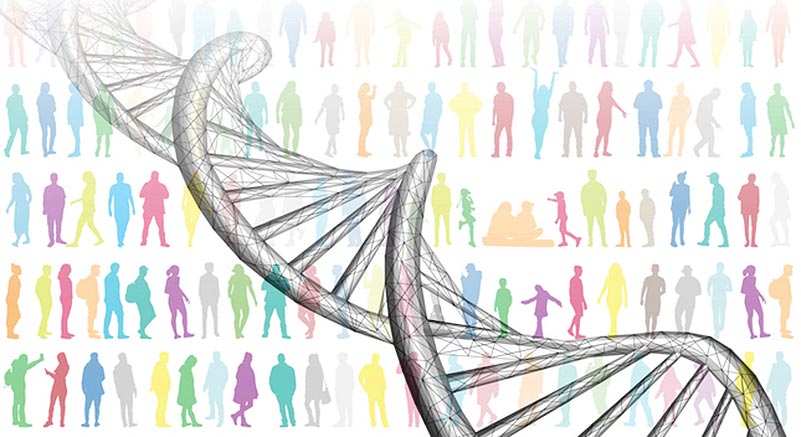How Genetic Variations Affect Our Immune Cells
0 View
Share this Video
- Publish Date:
- 19 November, 2021
- Category:
- Covid
- Video License
- Standard License
- Imported From:
- Youtube
Tags

Genetic differences put immune cells at a disadvantage. Credit: La Jolla Institute of Immunology
New LJI study shows how a range of critical immune cells respond to SARS-CoV-2.
New research shows how genetic variations linked to severe cases of COVID-19 affect our immune cells.
The study, led by scientists at the La Jolla Institute for Immunology (LJI), is one of the first in-depth investigations into the links between COVID-19 severity and gene expression in many types of immune cells. This work could guide the development of novel COVID-19 therapies to boost immune cell function.
Among their findings, the researchers report that a gene in a cell type called nonclassical monocytes, which are part of the “first responder” team of innate immune cells, could be a potential target for COVID-19 therapies.
“This study highlights the power of human genetics to discover new pathways linked to disease,” said LJI professor Pandurangan Vijayanand, MD, Ph.D., senior author of the Nature Communications study.
The scientific community has identified many genetic differences, called polymorphisms, which they refer to as “severe COVID-19 risk variants.” These genetic variants are associated with gene expression and appear to influence the severity of the case. Still, scientists didn’t know which immune cells are most affected by these risk variants.
For the new study, Vijayanand and his colleagues combined patient genetic data from the COVID-19 Host Genetic Initiative and LJI’s open-access Database of Immune Cell Epigenomes (DICE) to define the genes and susceptible cell types affected by these risk variants. The team looked at 13 subtypes of the body’s main protective and virus-fighting cells: T cells, B cells, NK cells and monocytes.
“There are many different types of immune cells, and they all contribute small functions to the global picture,” said lead researcher Benjamin Schmiedel, Ph.D., an instructor at LJI. “We need to look at each type of immune cell individually to figure out how the immune system might respond to COVID.”
The researchers identified a number of important associations of genetic variants with genes. Among them was a risk variant that affected 12 of the 13 cell types studied. This severe COVID-19 risk variant on chromosome 21 was associated with decreased expression of a receptor on cells called IFNAR2. This receptor is part of a signaling pathway that alerts the immune system to infection. This new association may help explain why some people fail to mount a strong immune response to SARS-CoV-2.
Meanwhile, a risk variant on chromosome 12 showed the strongest effect in nonclassical monocytes, a type of innate immune cell that patrols the body and sends signaling molecules to alert other immune cells to threats. The risk variant resulted in nonclassical monocytes decreasing the expression of a gene called OAS1. A lack of OAS1 expression could hinder the body’s defenses by reducing the expression of a family of proteins that normally degrade viral RNA and activate the immune system’s antiviral responses.
“Nonclassical monocytes are a rare, underexposed cell type,” says Schmiedel. “They make up only about two percent of immune cells.”
Schmiedel hopes to conduct further preclinical assessments to determine the role of these genes in the pathogenesis of COVID-19. “Being able to identify these kinds of genetic mechanisms is a big step forward,” he says. “We can use the information that is there, combine it with our data on immune cells and find potential targets for therapy.”
Reference: “COVID-19 genetic risk variants are associated with expression of multiple genes in diverse immune cell types” Nov 19, 2021, Nature Communications.
DOI: 10.1038/s41467-021-26888-3
Other authors of the study, “COVID-19 genetic risk variants are associated with expression of multiple genes in different types of immune cells,” include Job Rocha, Cristian Gonzalez-Colin, Sourya Bhattacharyya, Ariel Madrigal, Christian H. Ottensmeier, Ferhat Ay and Vivek Chandra.
The study was supported by the National Institute of Health (grants R24-AI108564, R35-GM128938, S10RR027366, S10OD016262, and S10OD025052) and the William K. Bowes Jr. foundation.










